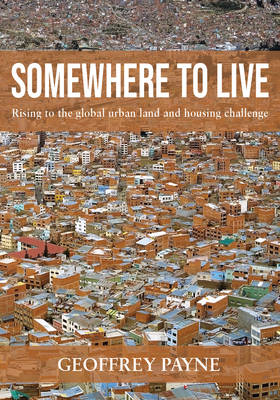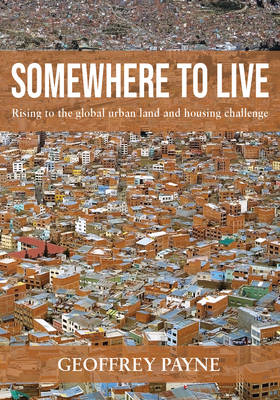
- Afhalen na 1 uur in een winkel met voorraad
- Gratis thuislevering in België vanaf € 30
- Ruim aanbod met 7 miljoen producten
- Afhalen na 1 uur in een winkel met voorraad
- Gratis thuislevering in België vanaf € 30
- Ruim aanbod met 7 miljoen producten
Somewhere to Live
Rising to the Global Urban Land and Housing Challenge
Geoffrey PayneOmschrijving
Despite millions of people being lifted out of poverty during recent decades, finding somewhere decent and affordable to live is proving increasingly difficult in urban areas around the world.
This is not by accident, but by design, since the forms of economic management that have held sway for four decades are intended to concentrate wealth and power in the hands of a small elite, excluding the vast majority from meeting their basic needs. They force countless vulnerable, yet enterprising groups to migrate in search of a better life, and also ignore the rich cultural traditions and practices that provide a sense of belonging and identity that is a key feature of all places we love to visit or live in.
Since the planet can no longer sustain unlimited economic growth, and humanity is facing an existential crisis, land and housing have become an expression of this crisis. However, the Covid pandemic has provided a wake-up call to encourage us to change the way we treat both the planet and each other, and many examples exist of innovative, demand-sensitive approaches that provide the basis, not just for meeting the need for land and housing, but for providing a better quality of life.
This book shows how to turn a crisis into an opportunity.
Specificaties
Betrokkenen
- Auteur(s):
- Uitgeverij:
Inhoud
- Aantal bladzijden:
- 336
- Taal:
- Engels
Eigenschappen
- Productcode (EAN):
- 9781788530965
- Verschijningsdatum:
- 15/03/2022
- Uitvoering:
- Hardcover
- Formaat:
- Genaaid
- Afmetingen:
- 156 mm x 234 mm
- Gewicht:
- 648 g

Alleen bij Standaard Boekhandel
Beoordelingen
We publiceren alleen reviews die voldoen aan de voorwaarden voor reviews. Bekijk onze voorwaarden voor reviews.











